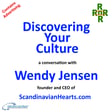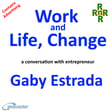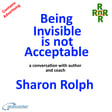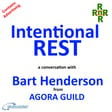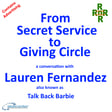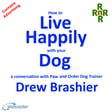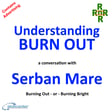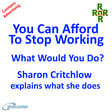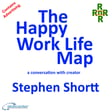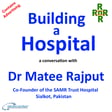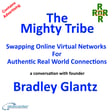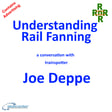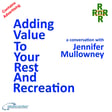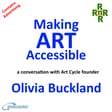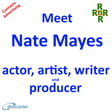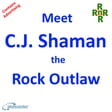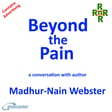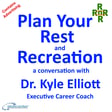
Finding Common Ground – a conversation with author Henrik Wilenus
Finding Common Ground, especially with teenagers – a conversation with author Henrik Wilenus
Parenting a teenager can involve walking an emotional tight rope as you try to help them manage the changing times of adolescence.
In this episode of the Abeceder work life balance podcast Rest and Recreation Henrik Wilenus the author of the Rise Up trilogy of coming-of-age novels explains using examples from his own experience, how to get along with anyone.
Henrik stresses the importance of seeking to understand the perspective of the other person so that you can focus on finding common ground. is approach to finding common ground, not just with teenagers.
With practical explanations of how to do this Henrik provides a route that anyone facing or trying to avoid a conflict situation can follow to identify a resolution
The Independent Minds is Made on Zencastr, the all-in-one podcasting platform, on which you can create your podcast in one place and then distribute it to every platform. Zencastr really does make making content so easy.
If you would like to try podcasting using Zencastr visit zencastr.com/pricing and use our offer code ABECEDER.
Thank you to the team at Matchmaker.fm for introducing me to Henrik. If you are a podcaster looking for interesting guests or if like Henrik, you have something interesting to say Matchmaker.fm is where matches of great hosts and great guests are made. Use our offer code MILW10 for a discount on membership.
Travel
Henrik describes how being able to travel has exposed him to different cultures and explains how these experiences have influenced his approach to conflict.
You can also experience different cultures by becoming a member of The Ultimate Travel Club which enables you to travel at trade prices. Use our offer code ABEC79 to receive a discount on club membership fees.
Visit Abeceder for more information about both Michael Millward, and Henrik Wilenus.
Proactive Positive Ageing.
It is always a good idea to know the risks early so that you can take appropriate actions to maintain good health, that is why we recommend The Annual Health Test from York Test.
York Test provides an Annual Health Test. An experienced phlebotomist will complete a full blood draw at your home or workplace. Hospital standard tests covering 39 different health markers are carried out in a UKAS-accredited and CQC-compliant laboratory.
A Personal Wellness Hub gives access your easy-to-understand results and guidance to help you make effective lifestyle changes anytime via your secure, personal Wellness Hub account.
Visit York Test and use this discount code ABECEDER2.
Being a Guest
If you would like to be a guest on The Independent Minds, please contact Abeceder.
We recommend that potential guests take one of the podcasting guest training programmes available from Work Place Learning Centre.
If you have liked this episode of The Independent Minds, please give it a like and download it so that you can listen any time anywhere.
To make sure you do not miss future editions please subscribe.
Remember, the aim of all the podcasts produced by Abeceder is not to tell you what to think, but we do hope to make you think!
Until the next time, thank you to you for listening.
